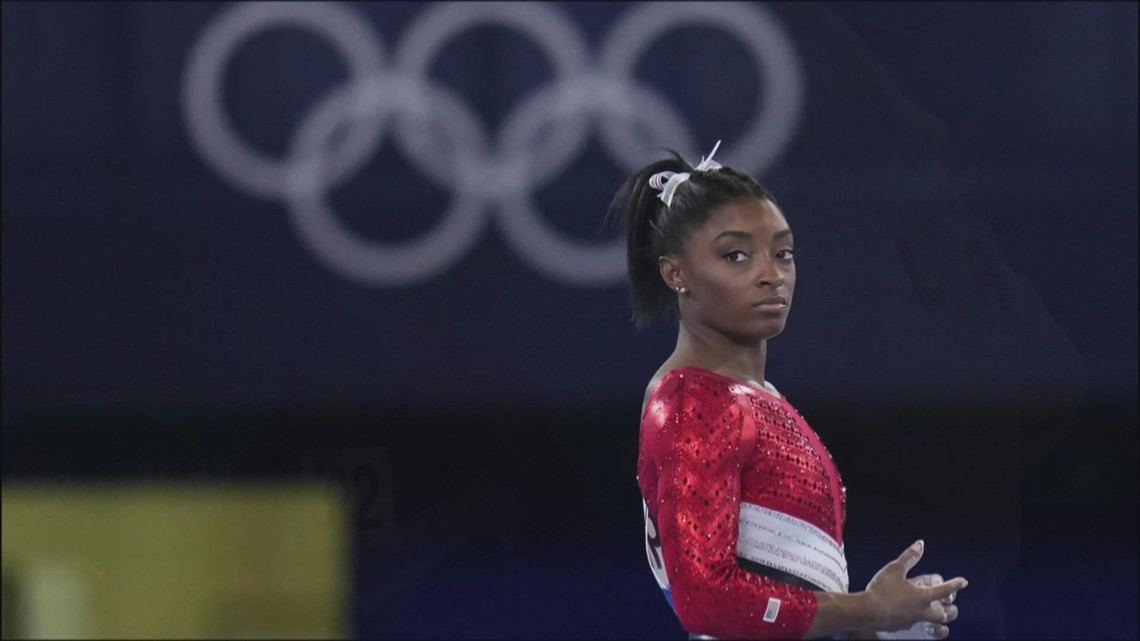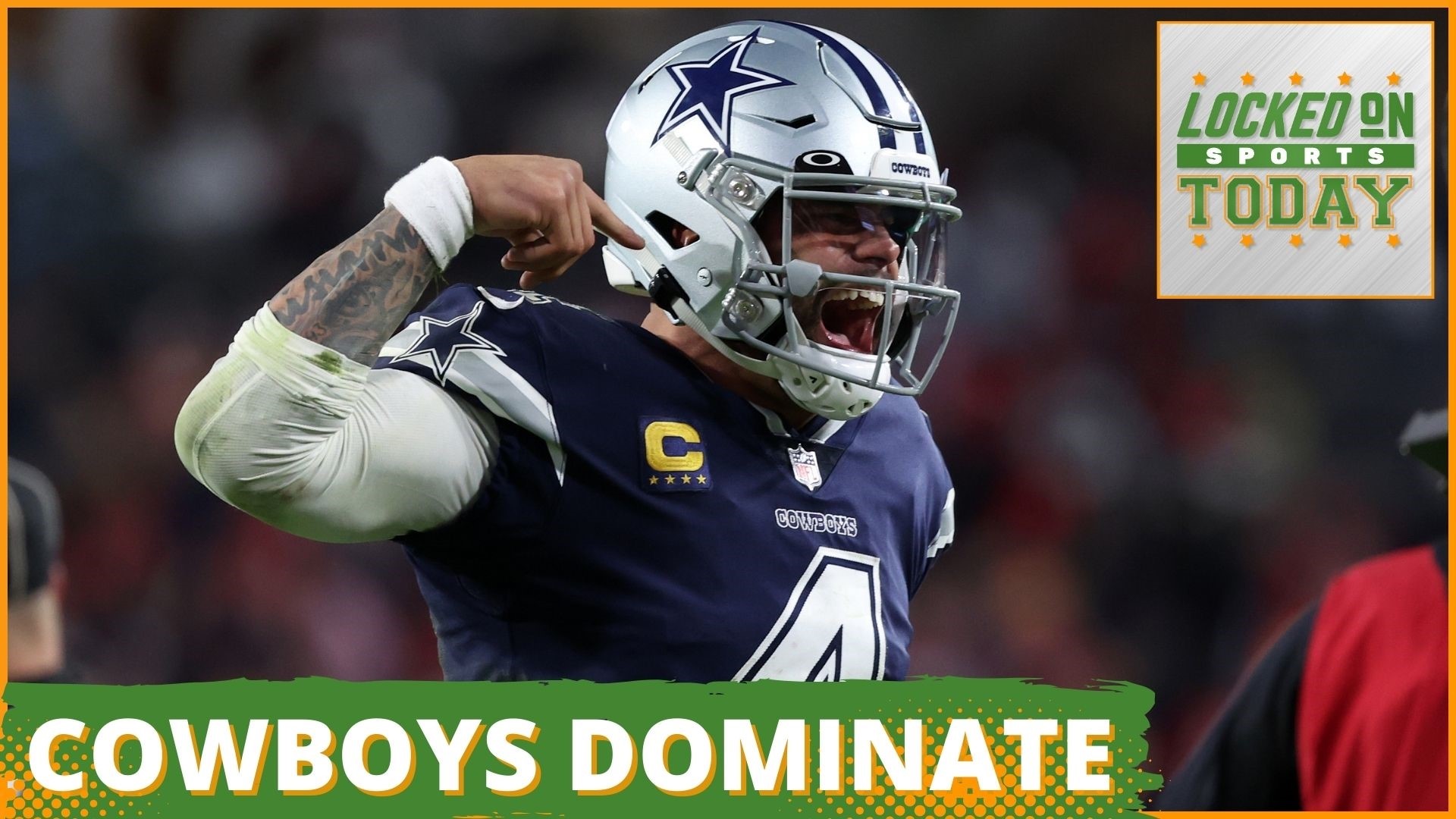DALLAS — On the biggest stage, Dallas Cowboys kicker Brett Maher apparently developed the biggest problem for a kicker: The yips, that almost inexplicable reason an athlete can't find a way to do the one thing they've done their whole career.
In fact, Merriam-Webster might describe it better, and they did on Monday night, dropping this Tweet during Maher's disastrous game against the Tampa Bay Buccaneers:
yips | noun | a state of nervous tension affecting an athlete in the performance of a crucial action
Thankfully for the Cowboys, Maher's missed extra points - four in a row Monday night, and five if you include his miss in the Washington game - weren't too crucial. Dallas was scoring touchdowns; Tampa Bay wasn't. And in the end, the Cowboys cruised to a 31-14 victory.
But Maher's performance, which did include a made extra point on Dallas' fifth touchdown, left football fans scratching their head. At no point in NFL history had a kicker missed four extra points in a playoff game - until Monday night.
Maher, though, was far from the first athlete to fall victim to the yips.
We've seen it happen over and over again, from some of the top athletes in their sport. And make no mistake, Maher, in 2022, has been a solid NFL kicker, finishing the regular season 8th in extra-point percentage (90.6%) and tied for 2nd made field goals over 50 yards (9/11).
Monday night just wasn't his night.
Here are some of the more memorable cases of the yips, or other similar instances of things going ... not as planned.
Chuck Knoblauch
Knoblauch was an all-star second baseman for the Minnesota Twins for much to the 1990s, even winning the American League Rookie of the Year in 1990. He had played on the game's biggest stage, winning a World Series with the Twins in 1991.
Then he got traded to the New York Yankees, and things just kind of fell apart.
Knoblauch's errors, as a second baseman, ballooned from 11 in 1997 to 26 in 1999. In 2000, he played in only 82 games at second base and had 15 errors.
Knoblauch's problem was the supposed easiest part about playing second base: The short throw to first base. He just couldn't do it consistently anymore.
In one bizarre mishap, his errant throw sailed into the Yankee Stadium stands and struck the mother of ESPN broadcaster Keith Olbermann.
Knoblauch switched to the outfield and was out of baseball after the 2002 season.
David Duval
Duval's case of the yips was marked more by the downturn of his career, rather than a single stumble. Duval was seen as a true challenger to Tiger Woods in the late 1990s and around 2000, even reaching the perch of No. 1 golfer in the world.
In 2001, he won his first major championship at the British Open.
It was also his last.
Duval's game simply slipped, and along with a series of injuries, he never won again on the PGA Tour. By 2003, he had dropped out of the top 300 in the world rankings.
You might recognize Duval today as an analyst for ESPN's golf coverage. He's also done analyst work for the Golf Channel.
Rick Ankiel
Ankiel was a top pitching prospect for the St. Louis Cardinals and made his debut as a 20-year-old in 1999. After pitching to a 3.50 ERA in 2000 -- an a runner-up for the National League Rookie of the Year -- Ankiel simply lost command of his pitches in the postseason, walking 11 batters in 4 total innings, and throwing nine wild pitches.
The issues carried into 2001; more walks, more wild pitches and Ankiel was sent to the minors. He returned briefly to the majors, as a pitcher, in 2004 but he ultimately switch to the outfield.
And the switch worked.
Ankiel made it back to the majors in 2007 and hit 11 homers in 47 games. Playing full-time in 2008, he hit 25 homers with an OPS of .843.
Ankiel played five more seasons, exclusively as a hitter, before retiring in 2013.
Daniel Bard
Bard's battle with the yips also had a good ending, but it took awhile. The former top prospect began his career as a shutdown reliever for the Red Sox. But somewhere along the way, Bard simply lost command
Unlike Ankiel, Bard didn't switch to the outfield. He battled through stints in the minor leagues and even retired at one point, in 2017.
In 2020, he returned to baseball with the Colorado Rockies, his yips seemingly under command. And now he's again one of the top relievers in baseball, having sported a 1.79 ERA and collecting 34 saves in 2022.
Simone Biles
Biles, the top gymnast in the world, battled through a case of the "twisties" at the 2020 Summer Olympics in Tokyo. While not the same as the yips, Biles still faced a mental block that forced her to withdraw from several events.
Biles, at the time, explained the issue on her Instagram:
"For anyone saying I quit. I didn't quit," she wrote on an Instagram story slide. "My mind and body are simply not in sync."
Biles fought through the twisties and battled back to a bronze medal finish in the balance beam.


Jarrod Saltalamacchia
Saltalamacchia, the former Rangers catcher, developed a yips condition that didn't show up on the box score: He couldn't get the ball back to the pitcher.
After recovering from a shoulder injury, Saltalamacchia, in one Triple-A game in Oklahoma City, had 12 errant throws back to the pitcher, the Dallas Morning News reported in 2010.
The issue wasn't a career problem for Saltalamacchia, though the Rangers did trade him to Boston during the 2010 season. He became a productive player for the Red Sox and helped the team to a World Series championship in 2013.
Markelle Fultz
Fultz was the No. 1 overall pick in the 2017 NBA Draft, which makes his early-career shooting struggles all the more bizarre. Reports of an ongoing shoulder issue, later coupled with a wrist injury, left Fultz in a funk.
Was it a classic case of the yips? Or simply an unlucky string of injuries? In any case, Fultz struggled to produce in two shortened seasons to start his career, and the 76ers traded him to the Orlando Magic.
Fultz developed into a regular started for the Magic. He battled injuries the last two seasons but has started 23 games since November.

